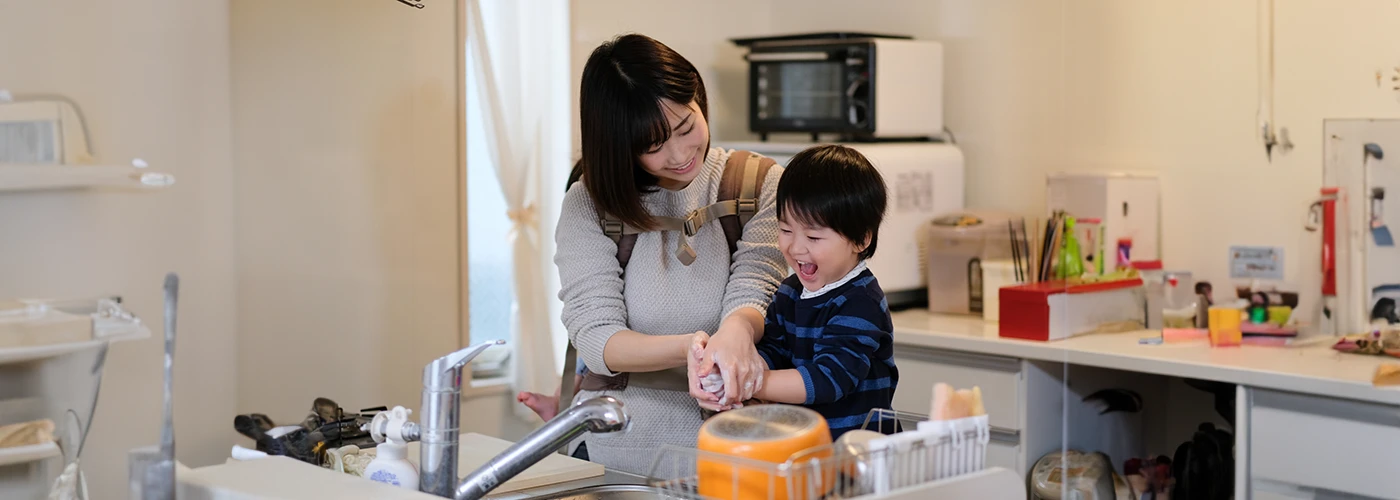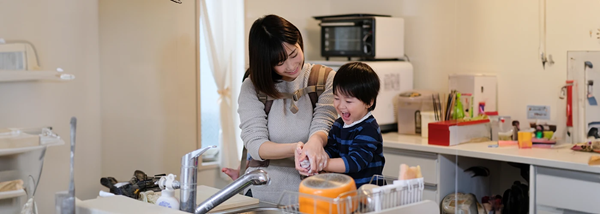Topics
Handwashing is a simple yet crucial practice that significantly prevents the spread of infectious diseases.Studies suggest that washing hands reduces the risk of respiratory infections by 20% and diarrhoea diseases by 30%.
In the context of children’s health, teaching proper handwashing and hygiene practices is of paramount importance.
This article will explore the importance of handwashing, proper handwashing techniques, and strategies for teaching these essential skills to children.
Why is handwashing important?
Proper hand hygiene reduces the transmission of harmful bacteria and germs, minimising the risk of infections.
Handwashing is a scientifically proven method for removing germs and preventing illnesses. Washing hands with soap and water creates a mechanical action that dislodges and suspends microorganisms.
The soap molecules break down the fats and proteins in germs, facilitating their removal when hands are washed. Handwashing is particularly critical after using the restroom, before eating, and after coughing or sneezing.
What are the common illnesses that can be prevented by proper hygiene?
Proper hygiene, including handwashing, plays a significant role in preventing various childhood illnesses, such as:
- Respiratory infections
- Gastrointestinal illnesses
- Skin infections
What are the techniques and steps of proper handwashing?
Adequate time spent on handwashing is crucial for effective germ removal. The Centers for Disease Control and Prevention (CDC) recommends a minimum handwashing time of at least 20 seconds. This duration ensures that all parts of the hands are thoroughly cleaned. This includes the palms, backs of hands, between fingers, and under nails.
To ensure effective handwashing, it is essential to follow a series of specific steps:
- Wet your hands under warm or cold running water.
- Apply soap and lather thoroughly, including the backs of your hands, between your fingers, and under your nails.
- Spend at least 20 seconds scrubbing your hands.
- Wash your hands thoroughly with running water.
- With a fresh towel or an air dryer, dry your hands.
- Use a towel or your elbow to turn off the faucet, especially in public restrooms.
How can parents and educators teach children about hygiene and handwashing?
Parents and educators can use several techniques to teach the importance of handwashing and hygiene while making it engaging and memorable for young minds:
Make handwashing and hygiene practices fun and enjoyable.
Children often learn best when they are engaged and having fun. Parents and educators can make handwashing enjoyable by using colourful soap, singing songs, or turning it into a game. This reinforces the importance of hygiene and makes it a positive experience for children.
Use age-appropriate materials to educate children on germs and illnesses.
Age-appropriate materials, such as books, videos, and interactive tools, can help children understand germs and how they can make them sick. These resources can explain the importance of handwashing in simple terms that children can understand.
Be a role model and practise good hygiene habits.
Children often mimic the behaviour of adults. Parents and educators can set an excellent example by consistently practising proper handwashing and hygiene. Children who see adults taking hygiene seriously are more likely to follow suit.
Incorporate hygiene education into daily routines.
Integrating hygiene and handwashing into daily activities can make it a habit. Encourage children to wash their hands before meals, after using the restroom, and after playing outside. Consistency is key to instilling good hygiene practices.
Use reminders and reward systems.
Parents and educators can use visual reminders like charts or stickers to track and reward children for their handwashing efforts. Positive reinforcement can motivate children to develop a lifelong habit of good hygiene.
Make an appointment at Pantai Hospitals
Teaching children the importance of handwashing and proper hygiene practices is crucial in promoting their health and well-being.
Understanding the science behind handwashing and following appropriate techniques is essential. Parents and educators can help children develop lifelong habits that protect them from common illnesses by incorporating hygiene education into daily routines.
Remember, prevention is key, and regular check-ups can further ensure the well-being of your loved ones. Ultimately, instilling these practices in childhood can impact public health by reducing the prevalence of infectious diseases.
Get in touch with us to book an appointment today for a consultation, or visit our Paediatric Care Department at your nearest Pantai Hospital.
Pantai Hospitals have been accredited by the Malaysian Society for Quality in Health (MSQH) for its commitment to patient safety and service quality.













